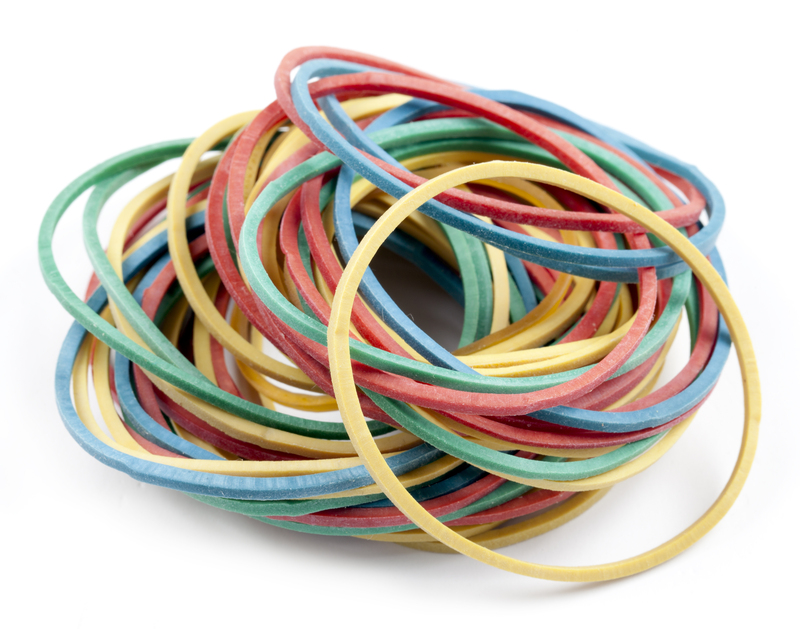Reduce Waste with Smart Plant Pot Disposal
Are you surrounded by empty plant pots cluttering your space after a gardening project? Many plant enthusiasts find themselves with piles of used containers each season and wonder what to do with them. The improper disposal of plant pots contributes significantly to landfill waste and environmental degradation. Fortunately, smart plant pot disposal offers eco-friendly alternatives and innovative solutions to reduce waste efficiently.
Why is Proper Plant Pot Disposal Important?
Before we dive into the sustainable ways to get rid of unwanted pots, let's understand the environmental impact. Most plant containers are made from plastic, ceramic, or clay. Plastic pots, in particular, are a major concern as they:
- Take hundreds of years to decompose
- Often end up in landfill sites, releasing toxins
- Are not always accepted by local recycling programs
Learning about responsible plant pot disposal can empower eco-conscious gardeners to reduce waste and support a healthier planet.

How to Dispose of Plant Pots Responsibly
There are several environmentally friendly options for plant pot waste reduction. These methods can help you declutter your space while minimizing your environmental impact.
1. Reuse: The First Step Towards Smart Plant Pot Disposal
Before thinking about throwing away those pots, consider their potential for reuse. Reusing is the most sustainable action because it extends the lifecycle of containers and minimizes resource usage. You can:
- Re-pot new plants:
- Wash and sterilize old pots to plant new flowers, herbs, or succulents.
- Organize tools in your shed or garage using large containers.
- Use for container gardening experiments or growing kitchen herbs.
- Convert into craft projects, planters, or unique gifts.
- Hand out to friends, schools, or community gardens.
This simple habit greatly contributes to waste reduction in plant pot disposal and actively supports sustainability.
2. Recycle: Give Plastic Pots a New Life
Not all plant pots are made the same, and recycling rules can vary depending on your location. Plastic plant pots are typically made from polypropylene (PP #5) or high-density polyethylene (HDPE #2). To recycle them effectively:
- Check the recycling symbol and number on the pot's bottom. Most facilities accept #2 and #5 plastics.
- Thoroughly clean your pots to remove soil and plant residue--dirty plastics may be rejected.
- Contact your local waste authority for garden center recycling programs.
- Major retailers and nurseries often have designated plant pot recycling bins.
Note: Colored, black, or thermal-formed pots may not be accepted in all programs. Always double-check before dropping off.
3. Donate Unwanted Pots
Another widely overlooked way of smart plant pot waste disposal is to donate them. Many community organizations benefit immensely from these donations:
- Community gardens appreciate extra pots for seedlings.
- Schools and youth programs use them for gardening projects.
- Non-profit groups and garden clubs organize plant sales and events.
- Neighborhood exchanges or local 'Buy Nothing' groups are excellent for rehoming items.
Donating helps close the loop and is a powerful step toward a circular economy for gardening materials.
4. Upcycle Plant Pots Creatively
Upcycling goes beyond simple reuse--transform your old plant pots into something new and functional! Here are some creative ideas:
- Painted storage bins for art supplies or toys
- A DIY bird feeder from terracotta pots
- Unique outdoor lanterns by adding fairy lights
- Decorative crafts for events and holidays
- Miniature water features or fountains
By upcycling, you not only reduce plant pot waste but also add a personal touch to your home and garden.
5. Switch to Biodegradable or Eco-Friendly Pots
Looking to avoid the plastic problem altogether? Choose eco-friendly plant containers such as pots made from:
- Coir (coconut fiber)
- Bamboo fiber
- Compressed recycled paper
- Peat or wood pulp
- Cornstarch composites
These materials naturally break down in compost or the soil over time, providing nutrients back to the earth and making pot disposal a breeze.
6. Compost Clay and Terracotta Pots
While clay and terracotta are not technically compostable, broken pieces can be crushed and added to compost piles, garden beds, or as drainage for potted plants. These materials are natural, inert, and gradually return minerals to the environment instead of clogging landfills, making them a smart option when disposing of inorganic plant pots.
Best Practices for Sustainable Plant Pot Disposal
For true smart plant pot disposal, follow these best practices:
- Identify the material type before selecting a method for disposal.
- Always clean and sterilize used pots to prevent disease and pest transfer.
- Contact local recycling centers to inquire about plant pot acceptance guidelines.
- Opt for compostable or biodegradable plant pots when purchasing new containers.
- Involve your local community by donating or exchanging unused pots.
- Store a few versatile pots for future use to avoid buying new ones later.
The Environmental Impact of Reducing Plant Pot Waste
Making informed choices about plant pot disposal not only keeps your garden tidy but also:
- Minimizes contribution to plastic pollution
- Supports the recycling industry and job creation
- Reduces demand for raw materials and energy consumption
- Encourages a culture of sustainability in gardening
- Inspires others to participate in eco-friendly practices
Consider this: millions of plastic plant pots are sold each year, but only a small portion is recycled. By adopting clever plant pot disposal strategies, gardeners can significantly decrease the ecological footprint associated with traditional gardening.
Future Trends in Plant Pot Waste Reduction
As environmental awareness grows, so do innovations in smart plant pot waste disposal. Keep an eye on these promising trends:
- Extended producer responsibility (EPR) programs - Encouraging manufacturers to design recyclable or compostable pots and manage their collection.
- Retailer take-back schemes - Major garden centers and nurseries setting up collection points for used pots.
- Biodegradable plant pot technology - Advances in materials science are yielding compostable polymers and plant-based containers.
- Community awareness campaigns - Initiatives to educate gardeners on plant pot recycling and upcycling options.
- Zero-waste gardening - A holistic approach to minimize all forms of gardening waste, including pots and packaging.

Frequently Asked Questions: Smart Plant Pot Disposal
Can I recycle all types of plant pots?
_It depends on local recycling regulations and the type of material. Most facilities accept plastic pots marked #2 (HDPE) or #5 (PP), but black plastic, ceramic, and some thermal-formed pots might not be accepted. Always check with your local facility first._
What should I do with black plastic plant pots?
_Black plastic is often not picked up by optical sorting machines, making it harder to recycle. Take them to garden centers or nurseries that accept black plastic pots, or consider reusing them for other gardening purposes._
How do I clean used plant pots before reusing or recycling them?
_Wash pots with soapy water and scrub off all soil residues. For best results, soak them in a solution of 9 parts water to 1 part bleach for about 10 minutes to eliminate pests or disease. Rinse thoroughly and dry._
Are biodegradable pots really safe for the environment?
_Yes! Pots made from coir, bamboo, peat, or paper decompose naturally in soil, reducing landfill waste and supporting healthier planting practices._
How many times can plant pots be reused?
_Strong plastic or ceramic pots can last for many years if handled carefully. With proper cleaning and storage, you can prolong their life for multiple seasons._
Conclusion: Make Smart Plant Pot Disposal a Habit
Embracing smart plant pot waste reduction is a rewarding way to gardening that benefits both you and the environment. By reusing, recycling, upcycling, donating, and choosing sustainable pots, you reduce waste and set a positive example for your community. Sustainable plant pot disposal requires creativity, research, and a willingness to change our habits--but the payoff is a cleaner garden and a healthier planet.
Next time you finish a gardening project, remember these actionable strategies and encourage others to join in. Together, we can transform our gardens into hotspots of eco-friendly waste management and inspire a greener future.